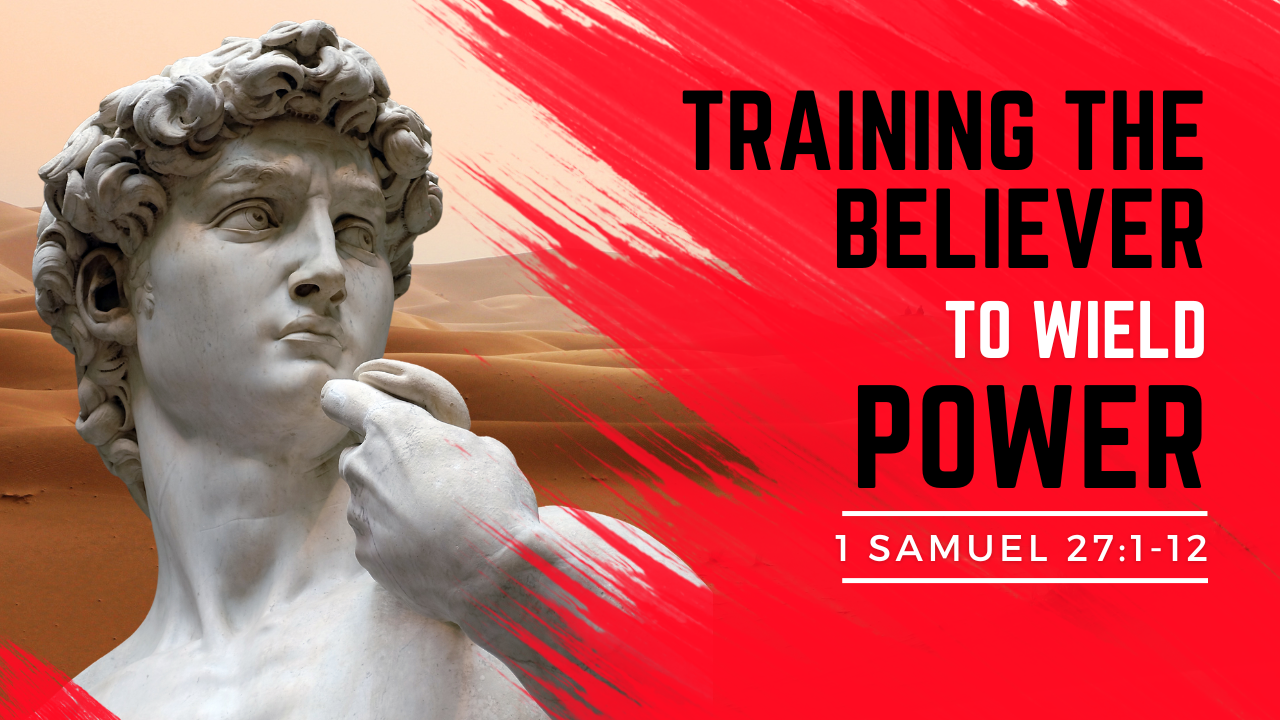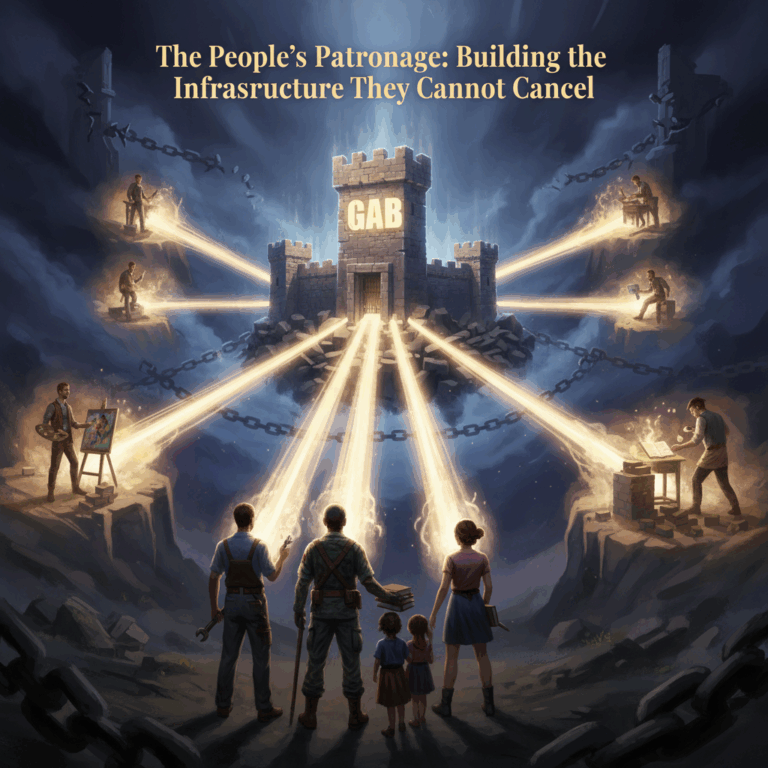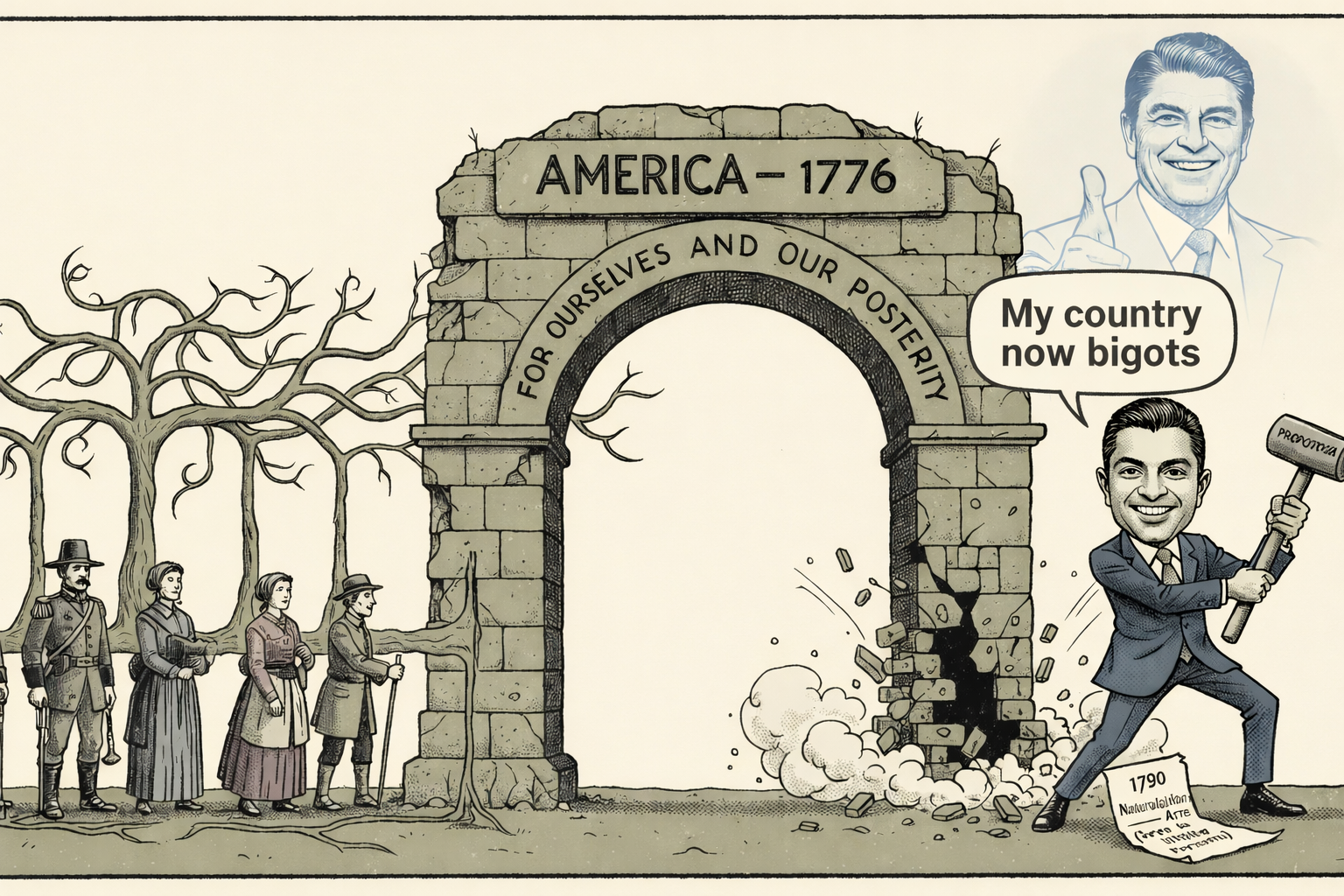1 Samuel 27
There is no topic more controversial within conservative Christianity today than the Christian’s relationship to political power. Many Christians believe it is the duty of the Christian to refuse to wield power, leaving it only in the hands of the wicked and godless. But the Bible does not teach that. In fact, the Bible gives us many examples of God raising men up to wield power wisely and shrewdly on behalf of his people. An entire book of the Bible, Proverbs, is about training a son to one day rule as a king. The Bible is a book about maturing men to be able to use authority well. David in 1 Samuel is the prime example of this.
Catch the First Sermon in this series here.
Catch the Second Sermon in this series here.
Catch the Third Sermon in this series here.
Catch the Fourth Sermon in this series here.
Catch the Fifth Sermon in this series here.
Catch the Sixth Sermon in this series here.
27 And David said in his heart, “Now I shall perish someday by the hand of Saul. There is nothing better for me than that I should speedily escape to the land of the Philistines; and Saul will despair of me, to seek me anymore in any part of Israel. So I shall escape out of his hand.” 2 Then David arose and went over with the six hundred men who were with him to Achish the son of Maoch, king of Gath. 3 So David dwelt with Achish at Gath, he and his men, each man with his household, and David with his two wives, Ahinoam the Jezreelitess, and Abigail the Carmelitess, Nabal’s widow. 4 And it was told Saul that David had fled to Gath; so he sought him no more.
1 Samuel 27:1-12
5 Then David said to Achish, “If I have now found favor in your eyes, let them give me a place in some town in the country, that I may dwell there. For why should your servant dwell in the royal city with you?” 6 So Achish gave him Ziklag that day. Therefore Ziklag has belonged to the kings of Judah to this day. 7 Now the time that David dwelt in the country of the Philistines was one full year and four months.
8 And David and his men went up and raided the Geshurites, the Girzites, and the Amalekites. For those nations were the inhabitants of the land from of old, as you go to Shur, even as far as the land of Egypt. 9 Whenever David attacked the land, he left neither man nor woman alive, but took away the sheep, the oxen, the donkeys, the camels, and the apparel, and returned and came to Achish. 10 Then Achish would say, “Where have you made a raid today?” And David would say, “Against the southern area of Judah, or against the southern area of the Jerahmeelites, or against the southern area of the Kenites.” 11 David would save neither man nor woman alive, to bring news to Gath, saying, “Lest they should inform on us, saying, ‘Thus David did.’ ” And thus was his behavior all the time he dwelt in the country of the Philistines. 12 So Achish believed David, saying, “He has made his people Israel utterly abhor him; therefore he will be my servant forever.”
Introduction
Do you remember what it was like to be a little kid, when you so badly wanted to get to do things the older kids got to do? Do you remember what it was like when you finally got to stay home alone for the first time, or the first time your dad gave you the keys to the car? You know that you have realized a new stage of life, a new stage of maturity. But then the flip side of that eventually settles in, with that new stage of maturity comes new challenges. It sounded nice to get to stay home alone, but now mom and dad have stuff they want you to do while they are gone. It sounded so much fun to finally get to drive, but now you have to pay for gas and maintain a vehicle. With a new stage of maturity, there is new, greater, more difficult challenges that come with it, challenges you didn’t have to face when you were not as mature. That is what is taking place in this passage. David has passed the tests God has placed before him, and now God is bringing him into a new stage of maturity. It may not seem like a “reward,” but if we have eyes to see it, we can understand David is one step closer to being the king after God’s own heart.
A Wise King in the World (27:1-12)
After Saul pursued David again after David spared his life, David knew that there was no way Saul was going to keep his word after David spared him again. He knows he has to get out of there. So where does he go? He does what the Patriarchs did when they could no longer stay in The Land; he goes to Egypt. “Egypt?! But it says Philistia,” you might say. Yes, and what are Philistines? In Genesis 10:13-14 we see that Mizraim (Egypt) was the grandfather of the Philistines. The Philistines are a tribe of Egyptians. The oppression of the Philistines makes a lot more sense when we put it in this context. So does David fleeing there. David is Abraham fleeing to Egypt. He is Isaac fleeing to Philistia. He is Joseph and all Israel taking refuge under Pharaoh’s house.
Like the Patriarchs going to Egypt (and Philistia), it isn’t just one guy and his family going. David is a warlord, a minor prince, just as the Patriarchs were. He has an army of 600 men just as Abraham had an army of over 300. And from this we can safely assume David had a micro-kingdom that numbered in the thousands. Each of his fighting men with a household of his own with a wife (or wives), children, and slaves. You could imagine this scene in your mind’s eye, like a miniature version of the Exodus, only in reverse.
Now, after Saul finds out David has fled to Gath, he gives up his pursuit of him. He knows that they are not strong enough to invade Philistia to go get him, they are barely strong enough to keep the Philistines out of Israel. So he gives up. David’s plan had worked.
But there is a catch. He has to go before the king of Gath, Achish to ask him for a place to live. Achish gives him Ziklag. Now, Ziklag, technically isn’t Philistine territory, though it is occupied by them. It was territory that Judah was supposed to take in Joshua’s conquest that they failed to secure. But now David has recovered this piece of Judah for himself. And what is more interesting is that if you look ahead in the Bible, this alliance with Gath seems to be permanent. Amos and Zechariah both prophesy against Philistia, but mention all the other great cities of the Philistines but Gath. In chapter 29, Achish swears in the name of Yahweh, something a devout pagan would absolutely refuse to do. After David becomes king, in 2 Samuel, there are hundreds of Gittites in David’s service, who are totally loyal to him. It seems that David’s service to Gath converts the Philistines.
But what was David’s service to them like? David had to be extremely shrewd. What did he do? When Achish sent him to go raid Israel, what did David do? He went and raided the Geshurites, Girzites, and the Amalekites instead. These are all nations that God abhorred and wanted destroyed. Nations of cannibals, sex perverts, and child sacrificers, that Israel was supposed to destroy generations ago. He would attack these nations, plunder them, and then kill all the men and women so no one would be able to bring back word to Achish what had taken place. David would lie to Achish and say that he attacked Judah. And what was the result? David won over the trust of Achish, making him believe that David had totally betrayed his own people.
This is a very difficult thing for many people who might not know the Bible very well. There are many examples of God’s people deceiving the enemy and God blessing them in doing so. The Hebrew midwives are the clearest example, but Sarah and Rebekah, Jacob, Rachel, Tamar, Rahab, Ehud, Jael are also among those who lie to the enemy in the context of warfare. In all these examples, there person who deceives the enemy is greatly blessed as a result.
David is forced to go to the Philistines and serve them, but he cannot betray his own people. There are plenty of other people he can raid and plunder to make Achish happy. People that God has set apart as Israel’s enemies even. And some might balk at David’s conduct in killing the men and women of these places, not recognizing that God Himself had commanded Israel to wipe out men, women, and children of the land of Canaan, and Saul had been commanded to wipe out the Amalekites as well. These are nations that needed to be plundered and destroyed, whether David was in the service of Achish or King of Israel in his own right.
What is most interesting about this passage is what it means for the overarching story of David. It mirrors the same pattern the Bible shows us right in the very beginning. In the very beginning of Genesis there are three parts of the world. There is the Garden-Sanctuary, the Land of Eden, and the rest of the World. And in the beginning of Genesis there are successive falls. First, Adam in the Garden-Sanctuary. Then Cain in the Land of Eden. Then the faithful Sons of God intermarrying with the godless Cainite daughters of men in the World, which resulted in the flood.
We see a similar path to maturity in the Bible for God’s people. First, there is the Priesthood stage, concerned with the sanctuary, the Tabernacle. Then there is the Kingship stage, concerned with governing and protecting the Land. Finally, there is the prophetic stage, concerned with the Spirit blowing this way and that way throughout the World. These three stages correspond with Israel’s history. Israel at Sinai is concerned primarily with sanctuary worship and the law. Then at the stage Samuel shows us, we see the transition to kingdom, with many brother-brother fights. Then Israel goes into exile in the World, and is in that prophetic stage, where they are blown to the corners of the earth.
David is personally experiencing that third stage now. He has been driven out of the Land, and is now in the world. And in the World, he has to be incredibly shrewd and careful. He has to deceive Achish, all the while demonstrating a kind of faithfulness that converts Achish and his people! That is a very difficult needle to thread. But David wisely and shrewdly does it. All the experiences he has had leading up to this have prepared him for this stage he is now in.
Conclusion
Seeing the culmination of David’s maturity here is what this passage means for us today. We have seen how our situation in the modern Western, so-called post-Christian world is very similar to David’s. And for many of you, you are working for the Philistines. You have to be extremely shrewd about how you go about things. We are a little over a year out from many of the Philistines our people serve forcing them to take part in a medical experiment in order to keep their job. What do you do in such a situation? Some places you have to keep quiet about what you believe or you will be hauled in front of HR and given a cardboard box to put your things in.
For the Christian today, life is much more like living in the Soviet Union than we want to believe. If you had lived in the Eastern Bloc as a Christian, you would be forced to lie, to falsify documents, to pay off officials just in order to be able to survive. Circumstances would force you to live like David under Achish. There are many Christians in circumstances not too far off from that. Where you have to be somewhat deceptive at your place of work in order not to be accused of the great blasphemies of the modern religion: racism, homophobia, or bigotry.
But why has God put us in this position? Why is this happening to us? For the same reason your dad gives you the keys to the car and expects you to change the oil and check the tire pressure regularly, and work to pay for gas and insurance. You are given difficult challenges in order to overcome and mature through them. That is what He is doing to us individually and as a people. He is putting us through the fire to refine us. He is filtering out those who are going to make it and those who are not. We face the challenges of the age, because God is using this to raise up leaders for the future. That is why things are as difficult as they are today. In order for things to be better in the future, He is preparing kings, just like David today through the same kind of crucible.
So the charge to you is this: in the midst of the agony of dealing with the modern world, be wise as serpents and innocent as doves and trust in the Lord Jesus Christ, that He will bring us through it, from glory to glory. In the Name of the Father, the Son, and the Holy Spirit. Amen!

Andrew Isker is the pastor of 4th Street Evangelical Church in Waseca, MN. He is a graduate of Minnesota State University and Greyfriar’s Hall Ministerial Training School, and he has served churches in Missouri, West Virginia, and Minnesota. He is the author (with Andrew Torba) of Christian Nationalism, and the author of the forthcoming book, The Boniface Option. Andrew, his wife Kara, and their five children reside in his hometown of Waseca, MN. He can be found on Gab @BonifaceOption.





